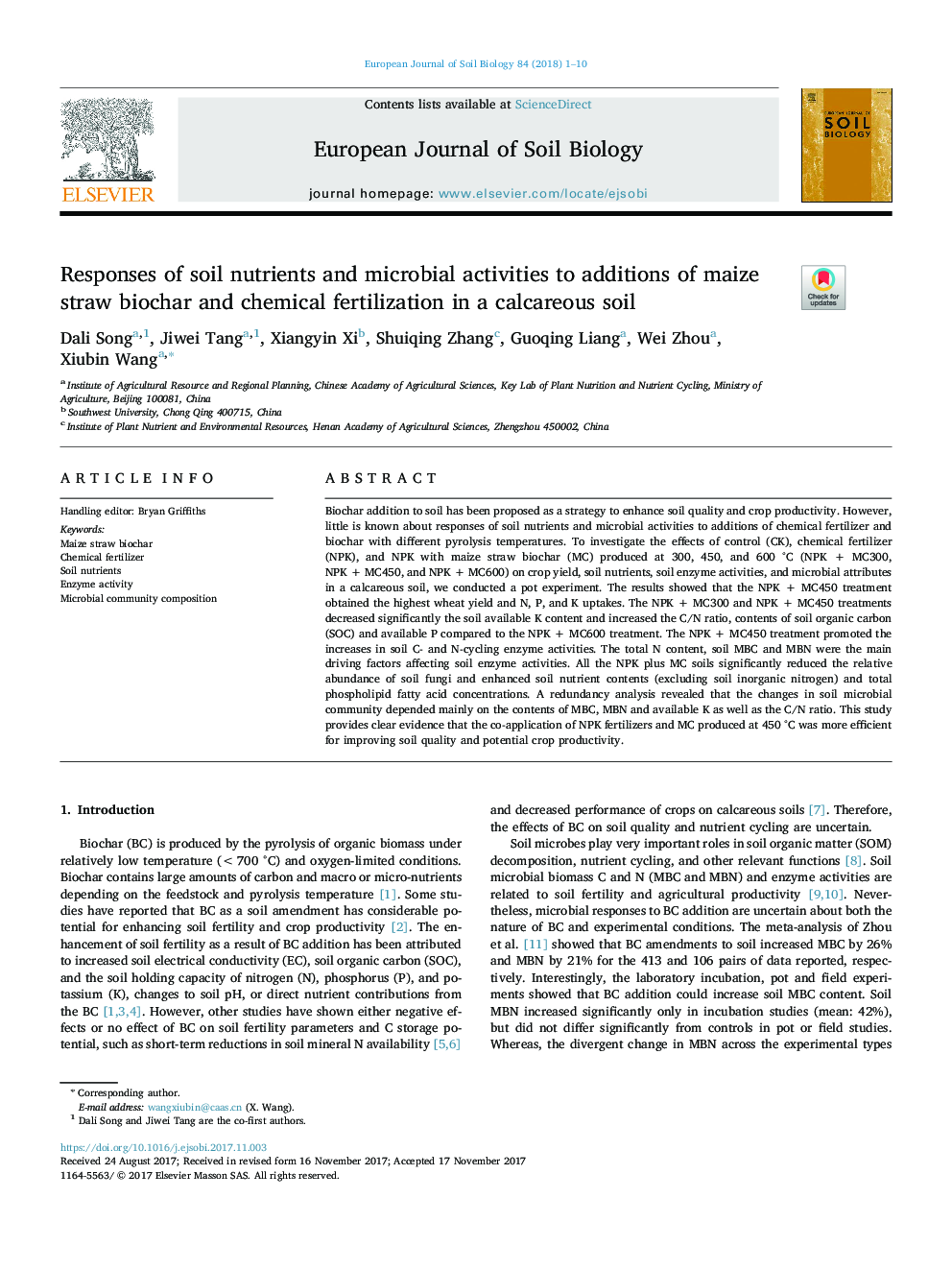| Article ID | Journal | Published Year | Pages | File Type |
|---|---|---|---|---|
| 8848399 | European Journal of Soil Biology | 2018 | 10 Pages |
Abstract
Biochar addition to soil has been proposed as a strategy to enhance soil quality and crop productivity. However, little is known about responses of soil nutrients and microbial activities to additions of chemical fertilizer and biochar with different pyrolysis temperatures. To investigate the effects of control (CK), chemical fertilizer (NPK), and NPK with maize straw biochar (MC) produced at 300, 450, and 600 °C (NPK + MC300, NPK + MC450, and NPK + MC600) on crop yield, soil nutrients, soil enzyme activities, and microbial attributes in a calcareous soil, we conducted a pot experiment. The results showed that the NPK + MC450 treatment obtained the highest wheat yield and N, P, and K uptakes. The NPK + MC300 and NPK + MC450 treatments decreased significantly the soil available K content and increased the C/N ratio, contents of soil organic carbon (SOC) and available P compared to the NPK + MC600 treatment. The NPK + MC450 treatment promoted the increases in soil C- and N-cycling enzyme activities. The total N content, soil MBC and MBN were the main driving factors affecting soil enzyme activities. All the NPK plus MC soils significantly reduced the relative abundance of soil fungi and enhanced soil nutrient contents (excluding soil inorganic nitrogen) and total phospholipid fatty acid concentrations. A redundancy analysis revealed that the changes in soil microbial community depended mainly on the contents of MBC, MBN and available K as well as the C/N ratio. This study provides clear evidence that the co-application of NPK fertilizers and MC produced at 450 °C was more efficient for improving soil quality and potential crop productivity.
Related Topics
Life Sciences
Agricultural and Biological Sciences
Soil Science
Authors
Dali Song, Jiwei Tang, Xiangyin Xi, Shuiqing Zhang, Guoqing Liang, Wei Zhou, Xiubin Wang,
